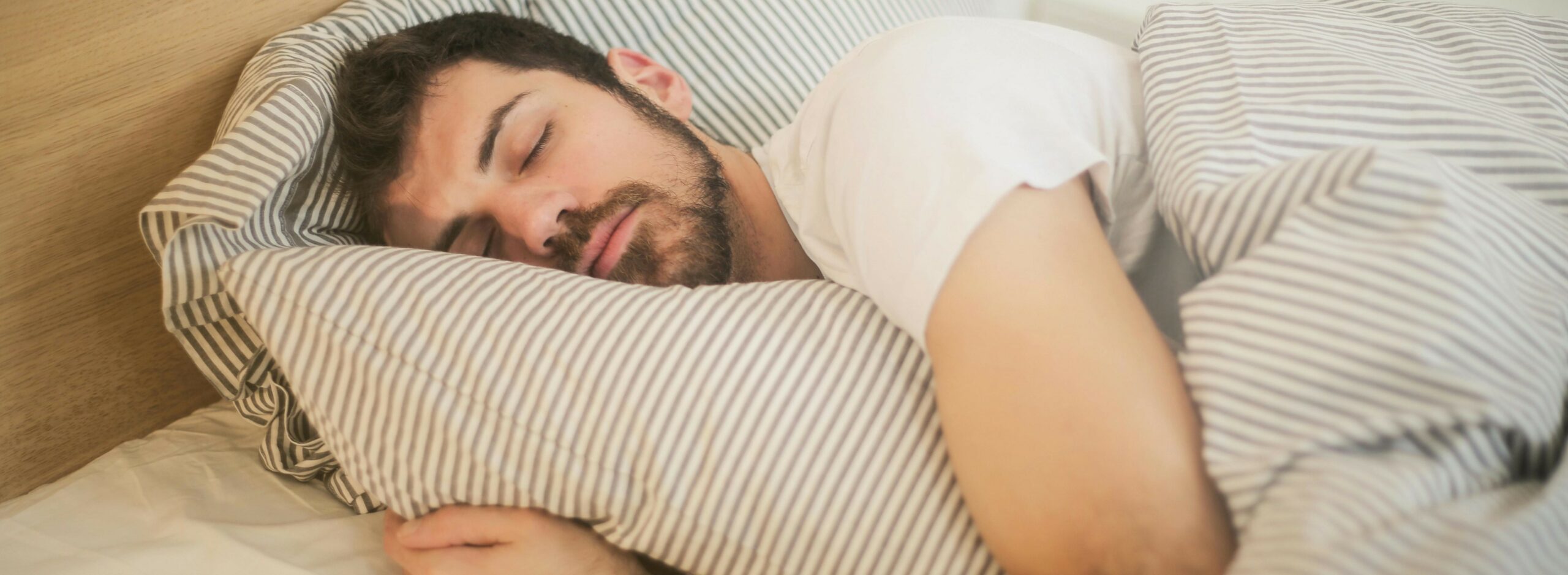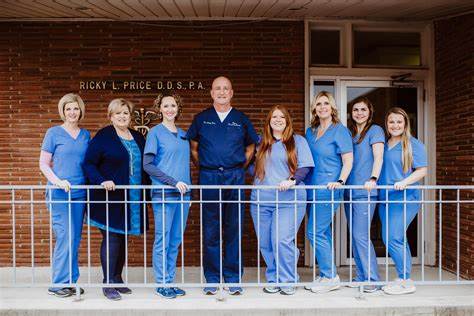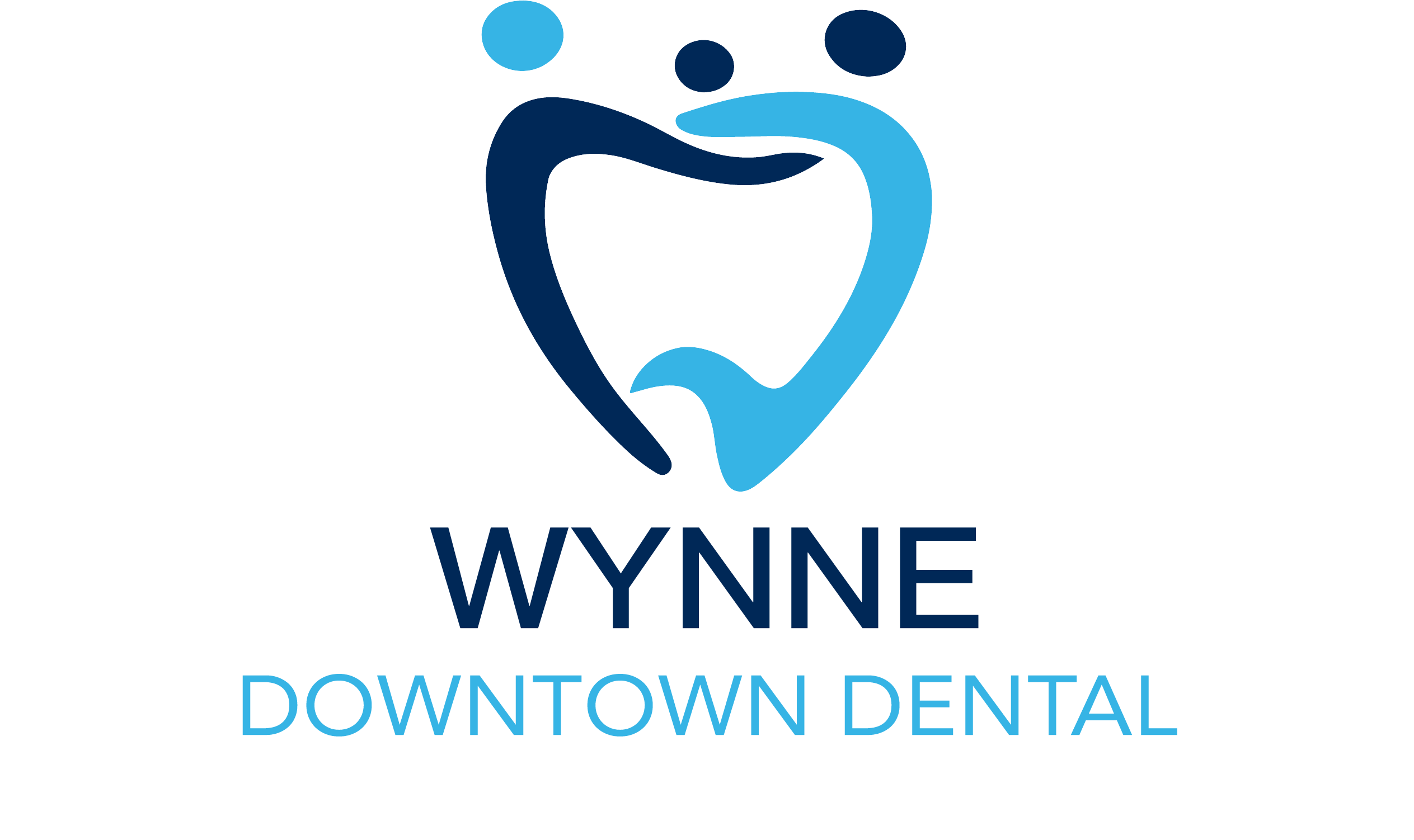
19 Aug The Sleep-Teeth Connection
Are you getting enough sleep? If you’re like most Americans, the answer is probably “no”. The majority of the population simply isn’t aware of the detrimental impacts of not getting enough sleep, especially in one particular category: your dental health.
Think that sleep is a minor issue? Think again: The CDC has declared that sleep deprivation has become a public health crisis! Almost all of us struggle with sleep in some way, with 50 to 70 Americans diagnosed with sleep disorders. A sleep disorder is a condition which disrupts healthy sleep, and may also cause further symptoms during the day.
The quality of your lifestyle, focus, and health are severely affected by your sleep habits.
When you think about the habits that will prevent cavities, you usually think about flossing and brushing your teeth, or avoiding candy and soda. But do you consider your sleep?
In scientific studies today, there is a growing amount of research confirming that sleep and dental health are closely linked. Given that the average American’s sleep schedule is inadequate, it’s time you learn about the damage your sleep struggles might be causing your teeth.
How Sleep Affects Teeth
Sleep, often called one of the three pillars of health, is an essential function of human life. For your core biological processes to function correctly, you need two things: duration and quality of sleep. To stay healthy, you must spend the right amount of hours asleep, but you also need to enter the deep rejuvenating stages of sleep. There are four stages of sleep, each with a unique purpose and function. For your oral health, the last two are the most important.
In the third and fourth (R.E.M.) stages of sleep, your body heals and repairs damage. During a normal night of sleep, your body circles through these phases four or five times. If you’re not sleeping enough, you are depriving your body of its self-healing mechanism. During the day, your teeth endure damage from acid and bacteria. A good night of sleep can help your teeth repair, but if bad sleep becomes a habit, your teeth will suffer as well.
Circadian Rhythm
Are you a morning or an evening person? According to research, your sleep chronotype is what determines your body’s natural circadian rhythm, a 24-hour cycle that controls when you sleep and wake up.
Studies show that people who prefer to stay up later are at higher risk for mental health conditions like depression and insomnia, but staying up late has physical effects, too. People who stay up late are more likely to have unhealthy lifestyle habits, particularly a diet that is high in sugary foods, which increases the risk for cavities. On the other hand, one Brazilian study shows that people who prefer to go to sleep and wake up early are less likely to exhibit disease. Sticking to a regular routine for sleep can impact your lifestyle to reduce your risk of cavities.
Insomnia
Trouble falling asleep? It may be more problematic than you realize.
Diagnosed as one of two types, chronic or short-term, insomnia is a condition where one is unable to fall asleep or stay asleep. Insomnia affects up to 30% of the population at any given time, and most people experience periods of insomnia in their lives. Insomnia significantly affects mental health: individuals with low-quality sleep are at higher risk for ADD/ADHD, depression, bipolar disorder, and anxiety. Sleep also regulates faculties like focus, emotional control, and memory processing.
Night-eating
Those who struggle with insomnia are prone to night-eating syndrome (NES). Staying awake late into the night can cause people to crave more food in addition to normal meals. In addition, lack of sleep also causes increased appetite, as people eat more food to stay awake, which has been shown to contribute to unhealthy weight gain and depression. The biggest threat to your teeth, however, isn’t eating out of normal hours, it’s what you eat.
For example, most of the snacks people reach for late at night tend to be much higher in sugar and carbs. Snacks like chips and ice cream contain simple carbohydrates, which break down into acid on your teeth. Making matters worse, most insomniacs do not remember to brush their teeth after their midnight snack.
The Impacts of Night Eating
Eating sugary and starchy foods before bed makes you more prone to cavities because it alters the bacteria in your mouth. Playing a critical role in dental health, your oral bacteria is what controls acid and saliva production, and tooth demineralization. Ideally, the bacteria in your mouth will create a protective layer of biofilm to keep your gums and teeth healthy, but if your mouth is harboring unhealthy bacteria, this will create an imbalance in your microbiota.
When your bacterial environment is disrupted, this creates a risk for gum disease and tooth decay. When you eat starchy or sugary foods, harmful bacteria react with the carbohydrates, producing lactic acid. An acid mouth environment has a lower pH balance, and acid demineralizes teeth. When your teeth are stripped of their minerals they are weakened.
This is how cavities develop: by bacteria entering weakened teeth because of sugar and acid. In order to prevent cavities, you must control the amount of unhealthy bacteria in your mouth, and one simple way to do this is by removing the sugary food they feed on. This doesn’t mean always avoiding these foods, but it does mean avoiding night eating and remembering to brush your teeth after any snacks.
Unhealthy Sleep Cycles
For those who have been diagnosed with type II diabetes, sleep may become a bit more complicated. There is a clear relationship between diabetes and poor sleep quality. If an individual is not consistently reaching the third stage of sleep or struggling to stay asleep during this stage, their insulin and glucose regulation is negatively altered.
A cyclical relationship has also been demonstrated between poor sleep and chronic obesity.
One of the most important functions of good sleep is regulating your hormones and metabolism. Your circadian rhythms control the production of two hormones: ghrelin, nicknamed “the hunger hormone” because of how it elevates appetite, and leptin, which suppresses appetite.
People who are overweight are at a higher risk for minor airway obstruction during the third stage of sleep, and this impacts hormone regulation. Further complicating the cycle, individuals who are struggling to sleep, due to the airway blockage, become more likely to make unhealthy food choices during the day.
Immunity
Sleep is vital for controlling the function of many body systems, especially immunity. In the scientific literature, lack of sleep is correlated with decreased immunity and a higher risk for bacterial infections. When it comes to dental health, this means that less sleep makes you more likely to fall victim to common dental infections, like periodontitis and gum diseases. Shorter sleep means higher susceptibility to the kind of bacteria that cause tooth decay.
There is a two-way relationship between sleep and immunohealth. When you get enough sleep, it recharges your immune system, which is why people who have a healthy immune system usually sleep better. Generally, people who get enough sleep have a lowered risk of infection, better response to treatments, and better outcomes when they do get sick. Through the production of cytokines, sleep provides a natural anti-inflammatory response throughout the body. Due to this bi-directional relationship, poor sleep can wreck your immune system. Sleep disruptions weaken the immune system and prevent your body from natural self-repair.
Sleep also plays a role in your body’s ability to remember infections and learn the most effective way to respond to the attack. This is called immunological memory, and it is believed that during the third stage of sleep, (SWS, or slow-wave sleep), your body consolidates memories, including how to fight off disease. In order to stay healthy, your immune system needs regular sleep.
Periodontitis
Chronic sleep loss has been linked to periodontitis: a common disease that attacks the soft tissue of your gums. Poor sleep affects not only the teeth, but the surrounding tissue as well, and if unnoticed, periodontitis can even spread into the jaw bone underneath the affected gums. If you’re getting less than 7 hours of sleep, you’re 36% more likely to develop this gum disease!
Bruxism
You’ve probably never heard of bruxism; you most likely know it by the name of tooth grinding. Grinding your teeth isn’t merely a common reaction to stress, it’s also the third most common form of sleeping disorder, right behind snoring and talking in your sleep. But unlike these two, bruxism is a real danger to your health.
Bruxism is the result of micro-arousals during sleep, two to three-second intervals where the person asleep experiences unconscious stress. This causes them to clench their jaw, leading to dental problems. During tooth-grinding incidents, the teeth experience 250 pounds of pressure from the jaw muscles!
Even though these incidents don’t always wake up the sleeper, studies show that people with bruxism tend to have poor sleep quality. Bruxism can chip and crack teeth, because of the immense pressure. It wears down enamel, the protective surface of the teeth, and can cause TMJ. Teeth grinding is categorized as a sleep movement disorder, and people who clench their teeth are likely to have other disorders like sleep apnea, in addition to bruxism.
Grinding your teeth may cause dental issues and need to be examined by a dentist. A dental professional can recommend treatment, such as a mouthguard to reduce wear and tear on teeth.
Sleep Apnea
According to the National Sleep Foundation, 18 million Americans have sleep apnea, a condition that causes small breathing interruptions throughout a normal night of sleep. These interruptions last anywhere from a few seconds to minutes at a time, and they can occur over 30 times in a single hour. Sleep apnea occurs as a result of airway obstruction: because the tongue is too large, the jaw is too small, or the muscles in the back of the throat are too relaxed.
Historically, obstructive sleep apnea (OSA) has been categorized as a disease that affects only adult males, but is now being diagnosed in women and children, Some research suggests that there are types of oral malformations observed in newborns and young children, that can develop into sleep apnea as the child grows up. For this reason, the American Academy of Dental Sleep Medicine recommends that every dental patient be screened for sleep apnea.
Sleep apnea is a common issue, however, it presents a wide array of problems for dental health.
First, there’s a correlation between sleep apnea and tooth loss. Studies show that if you’ve lost a tooth, then you are more likely to have sleep apnea. One possible reason is that because tooth loss can change tongue posture and breathing patterns, tooth loss leads to sleep apnea. Furthermore, each additional tooth an individual loses puts their risk of developing sleep apnea even higher. Lastly, having sleep apnea is also associated with temporomandibular disorder, (TMD), with men and women with sleep apnea being 73% more likely to have TMD.
Saliva production
One of the biggest factors in cavity development is saliva. Saliva regulates oral bacteria, lubricates the mouth, gums, and tongue, and plays a major role in controlling the spread of infection. By neutralizing harmful bacteria, saliva contributes to overall oral health.
Disturbances in circadian rhythms impact saliva production, meaning that the quality of your sleep directly affects the quality of your oral health.
Saliva flow and production occur in a pattern that’s similar to a circadian rhythm. During the day, production rates peak, because saliva is most needed to chew and digest food.
At night, flow rates lessen as the body prepares for sleep. The circadian rhythm of the salivary glands also affects the immune system because it controls the ionic composition of the saliva: saliva is supposed to have a certain protein concentration in order to function properly.
When an individual has bad sleep habits and a shorter sleep duration, this can alter circadian rhythms, leading to less saliva creation. Less saliva means an imbalanced oral environment and a vulnerable immune system.
Tips For Better Sleep
Sleep doesn’t just impact dental health. Rest is one of the biggest contributing factors to overall physical and mental health, impacting every area of our lives.
To ensure your sleep quality improves, here are a few simple steps you can take.
Establish routine
The circadian rhythm is essential for optimizing sleep quality and dental health. It’s easy to fall into unhealthy habits, but your body needs a consistent routine in order to function properly. Try to wake up and go to sleep at the same time every day, and your internal clock will adjust. If possible, try to keep meals and exercise at the same time during your day. Sticking to a stable schedule will improve your rest each night, and you might find that it improves your time management as well.
Stress reduction
For many people, it’s stress that keeps them from resting: that worry you just can’t forget, or the to-do list that didn’t get checked off. If you struggle with stress, then consider looking into stress management techniques.
Simple relaxation routines can make a big difference in your mental state before bed. Look into breathing exercises, gratitude journaling, r even stress management therapy, if it’s a serious problem in your life. Stress management has been shown to positively impact sleep quality, and is an easy and cost-free way to achieve better sleep.
Reduce screen time
Studies show that increased screentime during the day and screentime shortly before bed both have negative effects on sleep quality, so consider reducing your screentime.
Alcohol and Coffee
Many people rely on alcohol to drift off and caffeine to wake up, but neither of these substances is a substitute for a healthy circadian rhythm. Alcohol may seem like it aids sleep, but long-term regular alcohol intake can actually cause insomnia! If you struggle with achieving quality sleep, reduce your alcohol intake before bed. Similarly, make sure that any coffee is drank at least six hours before bed, and remember that coffee is not a substitute for genuine rest. Drinking more coffee might keep you awake, but it can’t undo the damage of insufficient sleep.
Daily dental routine
Lastly, in order to protect your teeth, it’s important to stick to a daily dental routine. Maintaining good oral health is simple, and can even help your sleep routine! Many people find that brushing their teeth at night is an easy way to signal to their brain that it’s time to sleep soon. Staying consistent with brushing and flossing is vital for dental health — and dental health is essential for overall wellbeing.
It goes both ways: get good sleep to protect your teeth, but similarly, you need to take care of your dental health if you want to sleep soundly.
At Wynne Downtown Dental, we take a comprehensive approach to dental. Ensuring that your dental health is promoted by your total health is one of our priorities in making sure you have the excellent dental care you deserve. Schedule an appointment at Wynne Downtown Dental today!

About Our Team
With over 30 years of expertise in the field of dentistry, our team here at Wynne Downtown Dental is ready to meet your needs. We’re passionate about educating our patients on improving their oral health and helping our patients get the smile they deserve.
